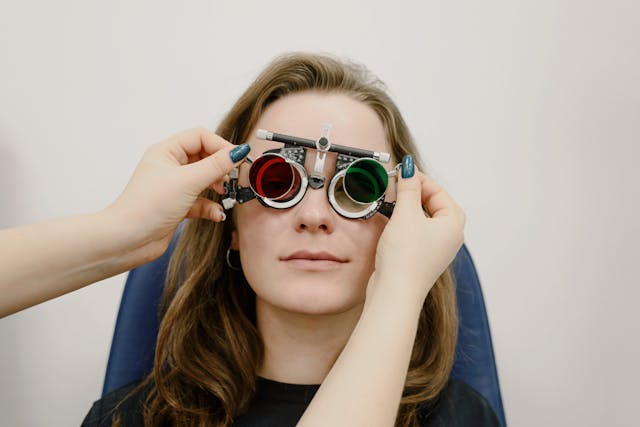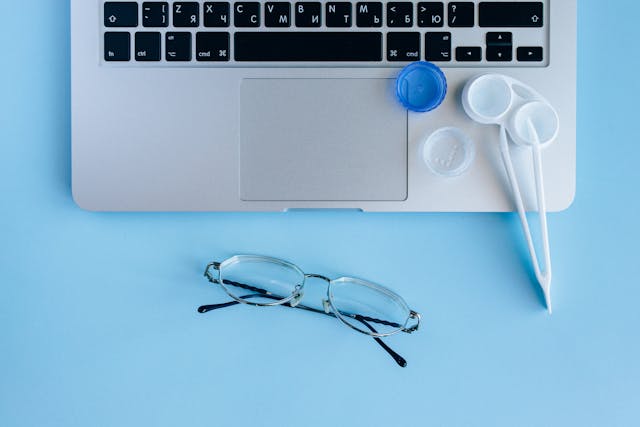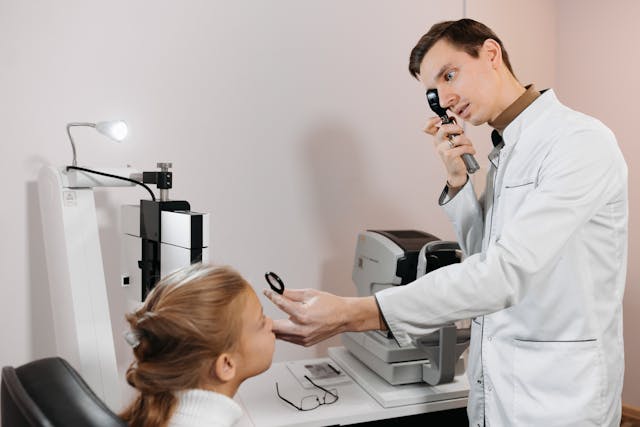In today’s rapidly advancing technological landscape digital health tools are transforming the way we manage our health and well-being. For seniors these tools can be particularly beneficial providing easy access to medical information promoting healthy lifestyles and enhancing communication with healthcare providers. However with so many options available it can be overwhelming to know where to start. This guide aims to help seniors navigate the world of health technology offering insights into various tools and how they can improve daily life.
Understanding Digital Health Tools
Digital health tools encompass a wide range of technologies designed to enhance health management. These include:
– Mobile Apps: Applications available on smartphones and tablets that assist with health tracking fitness medication management and more.
– Wearable Devices: Gadgets like fitness trackers and smartwatches that monitor physical activity heart rate sleep patterns and more.
– Telehealth Services: Online platforms that allow patients to consult healthcare providers via video calls chat or messaging.

– Health Portals: Secure online platforms provided by healthcare organizations for patients to access their medical records lab results and appointment scheduling.
Understanding these tools can empower seniors to take charge of their health in a way that suits their individual needs and preferences.
Benefits of Digital Health Tools for Seniors
Digital health tools offer a plethora of benefits for seniors including:
1. Improved Health Management: Seniors can track medications appointments and vital signs leading to better management of chronic conditions.
2. Enhanced Communication: Telehealth services facilitate direct communication with healthcare providers reducing the need for in-person visits.
3. Increased Accessibility: Health apps and online services can be accessed from the comfort of home making healthcare more convenient.
4. Empowerment Through Information: Access to health information helps seniors make informed decisions about their care and lifestyle.
5. Social Connection: Many digital tools include features that promote community engagement helping to combat loneliness and isolation.
Essential Digital Health Tools for Seniors
1. Medication Management Apps
Managing multiple medications can be challenging but medication management apps simplify this process. Apps like Medisafe and MyTherapy send reminders for medication doses allow users to track their medications and can even alert caregivers if doses are missed. This ensures adherence to prescribed treatments and helps prevent medication errors.
2. Fitness and Activity Trackers
Physical activity is crucial for maintaining health as we age. Fitness trackers such as Fitbit and Apple Watch monitor steps heart rate and sleep patterns. Many of these devices have user-friendly apps that allow seniors to set fitness goals track progress and even participate in virtual challenges with family and friends. Regular activity can improve mobility balance and overall well-being.
3. Telehealth Platforms
Telehealth services such as Teladoc and Am well provide seniors with access to healthcare professionals without the need for travel. These platforms allow for video consultations making it easier to discuss health concerns follow-up on treatment plans or receive prescriptions. Telehealth can be particularly beneficial for those with mobility challenges or those living in remote areas.
4. Health Monitoring Devices
Devices like blood pressure monitors and glucose meters that connect to smartphones can help seniors track vital health metrics. Many of these devices come with apps that log readings and provide insights over time allowing for more informed discussions with healthcare providers.
5. Cognitive Health Apps
Maintaining cognitive function is essential for aging well. Apps like Lumosity and BrainHQ offer brain training exercises designed to improve memory attention and problem-solving skills. Engaging with these apps regularly can help keep the mind sharp and promote mental wellness.

6. Health Portals
Most healthcare providers now offer patient portals which allow seniors to access their medical records view test results and schedule appointments. These portals promote transparency and give patients greater control over their healthcare. Accessing information online can lead to more informed discussions during medical visits.
7. Wellness and Nutrition Apps
Nutrition is a vital aspect of health and apps like MyFitnessPal and Lose It! can help seniors track their food intake and maintain a balanced diet. These apps provide insights into calorie consumption and nutritional value helping users make healthier choices.
Tips for Seniors Navigating Health Tech
While digital health tools can be incredibly beneficial seniors may face challenges in using them effectively. Here are some tips to make the transition smoother:
1. Start Simple
Begin with one or two tools that address specific health needs. For example a medication management app can be an excellent starting point before expanding to fitness or nutrition tracking.
2. Seek Assistance
Family members or caregivers can provide valuable support in setting up and navigating digital tools. They can help with initial setup demonstrate how to use apps and troubleshoot any issues that arise.
3. Prioritize User-Friendly Tools
Look for apps and devices designed with seniors in mind. Features such as larger text voice commands and simple interfaces can enhance usability.
4. Stay Informed
Take the time to read reviews and watch tutorial videos about different apps and devices. Many online resources offer guides specifically for seniors making it easier to understand how to use technology effectively.
5. Regularly Update Software
Keeping apps and devices updated ensures access to the latest features and security improvements. Set reminders to check for updates regularly.
6. Establish a Routine
Incorporate digital tools into daily routines. For instance setting a specific time each day for tracking medications or physical activity can promote consistency and improve outcomes.
7. Stay Engaged with Healthcare Providers
Discuss the use of digital tools with healthcare providers. They can recommend specific apps or devices that align with individual health needs and preferences.
Addressing Concerns About Digital Health Tools
While there are many benefits to using digital health tools some seniors may have concerns. Here are common concerns and how to address them:
1. Privacy and Security
Many seniors worry about the security of their personal health information. It’s essential to choose apps and devices from reputable sources that comply with privacy regulations. Always check the privacy policy and ensure data encryption is in place.
2. Technology Overwhelm
The fast-paced world of technology can be intimidating. Taking a step-by-step approach and focusing on one tool at a time can help alleviate feelings of overwhelm.
3. Cost Considerations
While many apps are free some may require subscriptions or one-time payments. Consider using free versions initially to assess their effectiveness before committing to paid services.
4. Learning Curve
There may be a learning curve associated with new technology. Be patient and give yourself time to learn. Many apps have built-in tutorials to help users get started.

Future Trends in Health Technology for Seniors
As technology continues to evolve several trends are emerging that may further enhance the health and well-being of seniors:
1. Artificial Intelligence (AI)
AI is becoming increasingly integrated into healthcare. For seniors AI can personalize health recommendations predict potential health issues and provide tailored fitness and nutrition advice.
2. Smart Home Technology
Smart home devices can enhance safety and convenience. For example smart medication dispensers can alert seniors when it’s time to take their medications while home monitoring systems can notify caregivers of unusual activity patterns.
3. Wearable Health Sensors
Future wearable devices may include advanced sensors that can continuously monitor vital signs and even detect potential health issues before they become critical.
4. Social Connectivity Features
More health apps may incorporate social features allowing seniors to connect with friends and family for support encouragement and social interaction.
5. Expanded Telehealth Services
As telehealth becomes more mainstream seniors will likely have greater access to specialized care from the comfort of their homes making healthcare more accessible than ever before.
Conclusion

Navigating the world of digital health tools can seem daunting for seniors but with the right guidance and resources it can be a rewarding experience. These tools offer unprecedented opportunities for improving health management enhancing communication with healthcare providers and promoting overall well-being. By starting with simple tools seeking assistance when needed and staying informed about the latest technologies seniors can embrace digital health solutions that cater to their unique needs. As technology continues to advance the future of health management for seniors looks bright promising a healthier and more connected lifestyle.

Leave a Reply